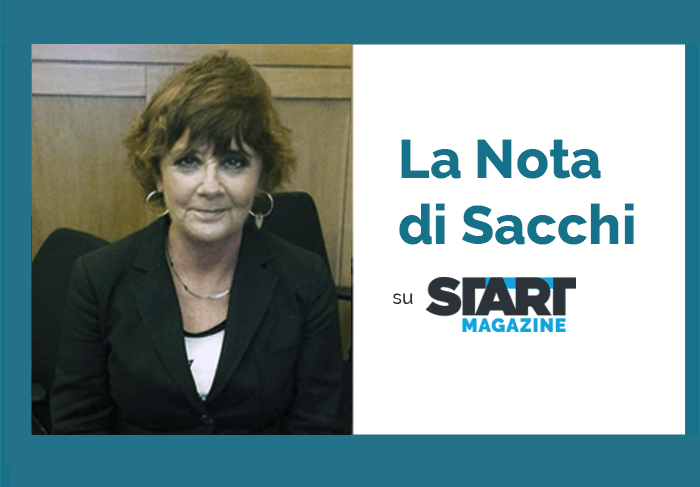Does the Meloni government have a cohesion problem?

What the latest moves of the majority and the Meloni government show. Paola Sacchi's note
Above all, given the situation in which the oppositions find themselves, the search for identity on the part of the Democratic Party, gripped between Giuseppe Conte on one side and Carlo Calenda with Matteo Renzi on the other, the most well-founded prediction appears to be that of Giorgia Meloni, in the yesterday's interview with Luciano Fontana, director of Corriere della Sera : "The government is destined to last".
But despite this, a problem of amalgamation and an image of a clearer unified vision by the centre-right or more exactly right-centre majority arises. Compare the daily distinctions in the first government of Silvio Berlusconi in 1994 – with decrees issued and then withdrawn, in the wake of the pressure from the Clean Hands pool, with two poles in the North with Umberto Bossi and one in the centre-south with Gianfranco Fini – with today's problems would be out of place, the historical contexts are completely different. And, in any case, Berlusconi then fielded a federative and leadership capacity in the coalition such that his second government lasted five years, the longest ever to date, the record before the Cav had been broken by Bettino Craxi in the First Republic from 83 at 87.
28 years have passed since 1994, the rave decree is not the Biondi decree, but the fact remains that from the beginning in the Meloni executive there has been almost one distinction a day. Then immediately rectified and toned down. But an image problem of cohesion arises.
The political point is that the unresolved knots of the coalition are coming to a head, one could say a somewhat cold coalition, staged during the electoral campaign, based on a common programme , accompanied by programs of the individual parties, but conducted by the leaders and from the parties in a physically separate way, while paradoxically it was more the voters who were united. The rule according to which whoever would get the most votes would be proposed as premier to the Head of State objectively imposed the cold coalition, which only met plastically at the end in Piazza del Popolo in Rome.
Meloni with FdI has clearly won, but not swept away, not reaching 30 percent, the League and FI are decisive partners, without whom the government no longer exists. All the more so a government led by a premier like Meloni who has always made the "anti-mess" his guiding star, in the face of the allies who paid in terms of consent for their participation in Mario Draghi's national emergency executive.
The premier is right in principle when he says that the government listens to the opposition when they say they are constructive, starting with the manoeuvre. But this majority doesn't or shouldn't have a problem with numbers. And FdI's desire to consolidate itself as a hegemonic force is also legitimate, perhaps acquiring more of a central appeal.
Yesterday, however, there was a one-two punch that wasn't exactly a great encouragement for the future. Calenda, leader of the "third pole", after being received, at his request, at Palazzo Chigi, where he was in conversation with Meloni, the Minister of Economy Giancarlo Giorgetti and other leading exponents, launched, perhaps as it was predictable, an attack by his own on Forza Italia, he accused his exponents as "saboteurs" of the maneuver. The same Calenda who even insulted the voters of the League in one of his many tweets.
Politics certainly as well as vision is pragmatism. But tensions, in which a partner inevitably had to emphasize their historical role and identity, have arisen. The reply from the Azzurri group leaders of the Senate and Chamber, Licia Ronzulli and Alessandro Cattaneo, who assured FI's commitment and responsibility on the manoeuvre, with "few and qualified amendments on de-contribution for pensions and young hired people", was dry. But they also harshly replied to the leader of the "third pole" to remember that "he is in the opposition". Message whose real recipient is evidently Meloni.
Ronzulli remarked "we are the center".
The meeting with Calenda took place on the same day in which Meloni scolded the majority to hurry up and in a coordinated way on the maneuver. Perhaps it was not a very happy coincidence, even with all the best intentions. Comparisons with the government of the so-called Union of Prodi's memory are certainly out of place, but even there there was a majority party like the DS but not too much and an amalgam, as recognized by Massimo D'Alema, never found, not even with cold fusion then in the Pd.
The centre-right or centre-right has an incomparable situation, with a consolidated unity in the Berlusconi governments and on the territory in the Municipalities and at the helm of the clear majority of the Regions. But the coalition has a premier, not a single leader. This is a bit of the paradox and the difficult bet with which Meloni objectively finds himself grappling, called by the facts to test the ability to give greater cohesion to his majority. Divided oppositions are a guarantee of durability for all governments, unless these divisions then cause a boomerang effect in the majority itself.
This is a machine translation from Italian language of a post published on Start Magazine at the URL https://www.startmag.it/mondo/governo-meloni-coesione/ on Wed, 30 Nov 2022 06:48:48 +0000.
